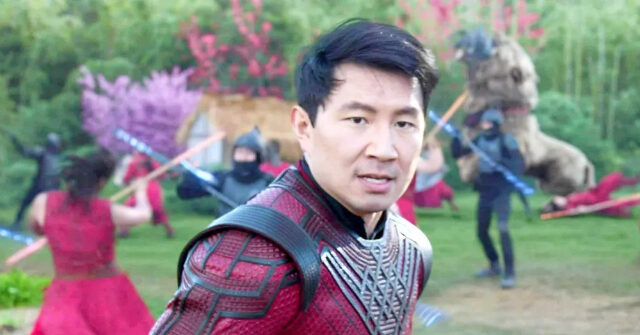A Canadian tea company, known as Bobba tea, recently faced scrutiny from Marvel star Simu Liu after he accused them of cultural appropriation during an episode of the reality TV series Dragon’s Den. Liu, appearing as a guest investor, challenged the company’s initiative, which aimed to innovate the bubble tea market by creating a “convenient and healthier” version of the popular Taiwanese drink. The actor expressed concern over the company’s intention to “disturb” and “transform” what he described as a beverage with a distinctly Asian identity, suggesting that a white-led company claiming to improve such a cultural product could be construed as racist.
The controversy emerged when Liu questioned whether the company had anyone familiar with the cultural significance of bubble tea on their team. Sebastien Fiset, the owner, responded that their recipes had been developed in collaboration with a partner in Taiwan. Liu’s disapproval led him to withdraw his potential investment in the company, signaling a broader critique of the appropriation of Asian culture by Western businesses. Following the episode’s airing, Bobba tea faced significant backlash on social media, leading to a public condemnation of their approach to marketing the iconic Asian beverage.
In light of the backlash, Bobba tea issued an apology that acknowledged Liu’s concerns about cultural appropriation. They expressed a commitment to reevaluating their branding to more accurately reflect the cultural heritage of bubble tea and its Taiwanese roots. The company’s public statement emphasized their desire to take this learning opportunity seriously and to ensure a respectful portrayal of their cultural partnerships moving forward. Additionally, the company issued a heartfelt apology on Instagram, recognizing the impact their words and actions had on cultural sensitivity.
Despite acknowledging the validity of Liu’s critique, he attempted to clarify his position by stating that he believed the company operated with “good faith” and should not be subjected to harassment. In a subsequent TikTok video, Liu urged people to practice kindness and understanding instead of attacking the tea company. His comments highlighted the delicate balance between cultural appreciation and appropriation, suggesting that while the company needed to be accountable, the response from the public should be measured and compassionate.
Meanwhile, another investor on the show, Manjit Minha, initially supported Bobba tea by offering funding to help improve their offerings. However, following the social media backlash sparked by Liu’s accusations and the broader conversation around cultural respect, Minha retracted her investment, signaling a shift in public sentiment toward firms that fail to acknowledge and honor the origins of culturally significant products. This incident highlights the growing awareness and sensitivity to cultural appropriation issues in the business community, particularly concerning products with deep historical roots.
Ultimately, the situation surrounding Bobba tea and Simu Liu serves as a reminder of the complexities involved in marketing products derived from rich cultural heritages. It emphasizes the need for businesses to engage thoughtfully with the cultures they draw inspiration from, ensuring that their actions reflect understanding, respect, and a genuine appreciation for the cultural significance of the products they sell. As the dialogue about cultural appropriation continues, companies must navigate these challenges carefully to foster positive relationships with the communities they represent and serve.

